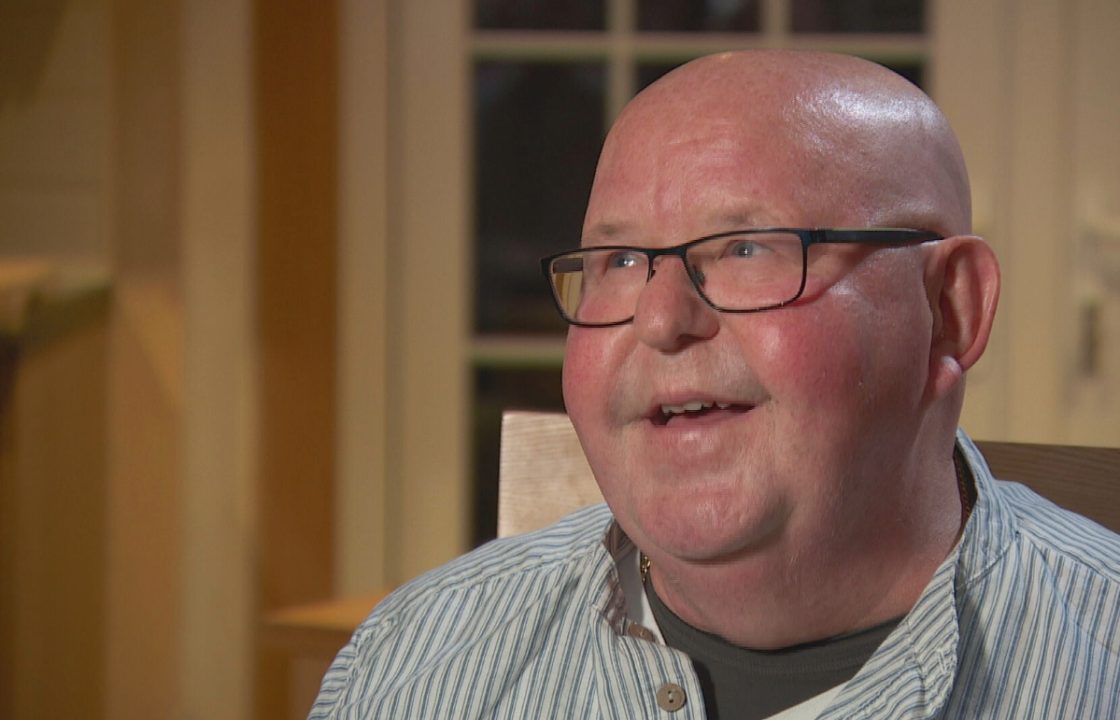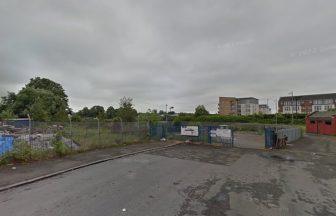Colin Gray heads out for a brisk walk on a cold, sunny morning and contemplates the procedure that has changed his life.
It’s a route he takes most days, around a mile-and-a-half long, often accompanied by his wife, Colleen, and their beloved dogs.
As he pounds the footpath, it’s hard to imagine that just a few weeks prior, Colin was in intensive care and recovering from a heart transplant.
He told Scotland Tonight: “It’s been hard not to overdo things, and the consultant has asked me to rein it in a little bit, because he thought I might be trying to push too fast. But as I said to him, I just want to get back to a normal life as soon as possible really.”
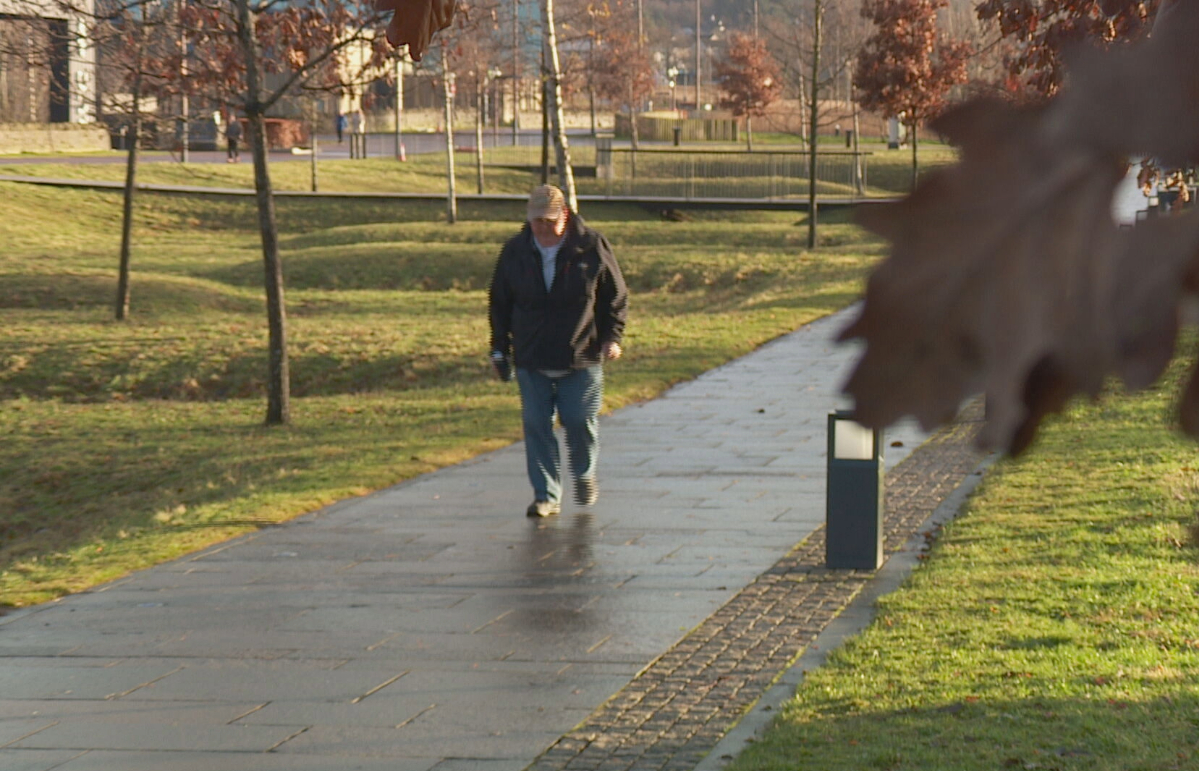 STV News
STV NewsColin was one of dozens of patients to receive a heart transplant at the Golden Jubilee University National Hospital, just outside Glasgow, last year. In 2022-23, the team there performed 40 operations, a record not only for them, but for any hospital in the UK.
Some 15 years ago, Colin was diagnosed with cardiomyopathy, a condition that affects the heart’s ability to pump blood around the body.
He was previously fitted with a pacemaker, but in the months before his transplant operation, he was struggling to walk 30 yards without becoming completely breathless.
His condition was only going to deteriorate further. Colin said: “It would have just been a continual downward spiral. So I would have been doing less and less and less to the point where I would have possibly been hospitalised or just stuck upstairs in bed.”
That was until he received a phone call at 4am, telling him that a donor heart was available for him.
An ambulance took him from his home in Inverness to the city’s Raigmore hospital, and then he was flown to the Golden Jubilee.
‘I’m hoping it won’t be too long a road for me’
The first time Scotland Tonight met Colin was later that day, at 10:30pm. As he lay on the ward, considering the enormity of the procedure he was about to undergo, he appeared remarkably calm.
Asked how he was feeling, he replied: “Anxious, but I’ll be so glad, hopefully, once everything’s over. I can get my life back to normal, and get back out walking the dogs. I’m hoping it won’t be too long a road for me.”
When a donor passes away, their organs can be moved anywhere across the UK, but time is of the essence. Specialists have to find a recipient who is a suitable match.
That assessment is based on blood type, sex, height and age. Once they have been identified, doctors normally have around 24 hours to remove a heart from a donor and transplant it.
When the donor heart arrives in the theatre, Colin’s own heart can be removed. He is hooked up to a heart and lung bypass machine, which keeps oxygenated blood flowing around his body.
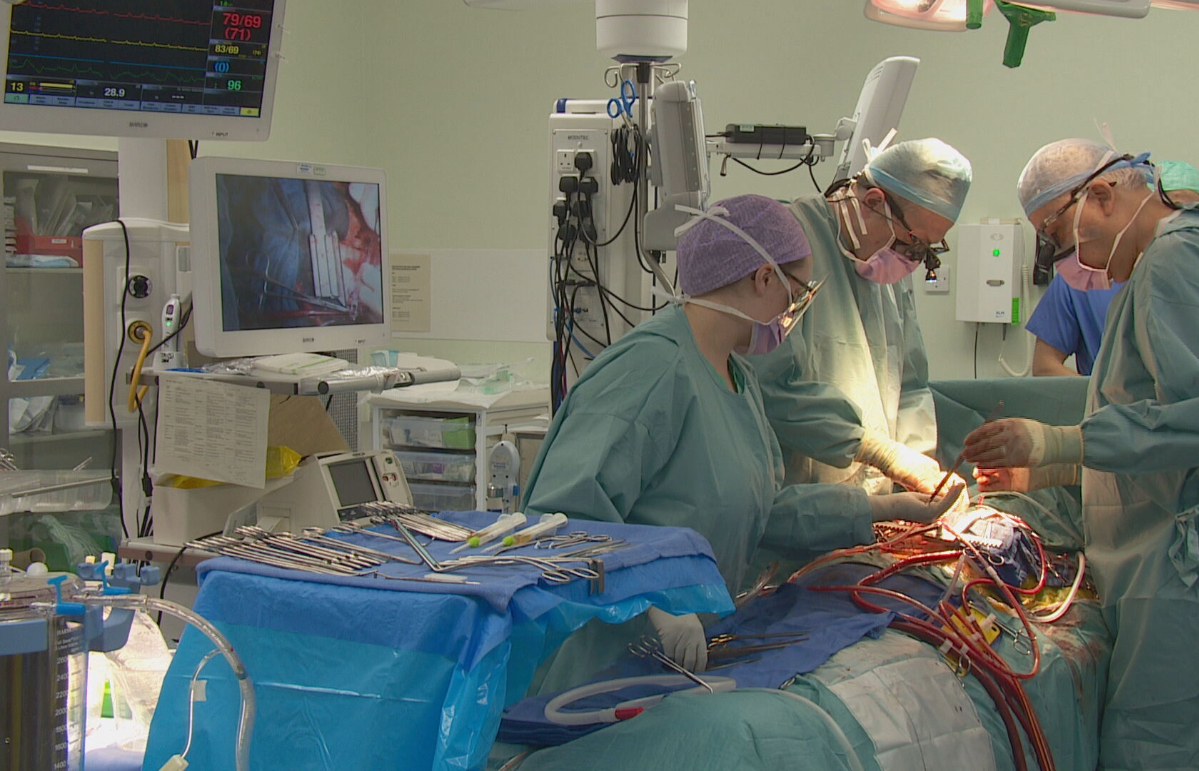 STV News
STV NewsAll progressed smoothly, until the bypass machine suddenly shut down. A replacement had to be retrieved from another theatre, and more specialists were called in to help transfer Colin on to it.
Consultant cardiac surgeon Simon Messer, who was leading the operation, said: “Thankfully, we’re trained to deal with that if that happens, and it was a quick, swift turn around onto another machine.
“But you can imagine that it was quite fraught, because his body was without blood supply for about five minutes. And to protect his body we would cool it 20°c whilst that’s happening.”
Experts from the perfusion department, who operate the bypass machines, were able to fix the issue, and remarkably, Colin was stabilised.
Simon said: “It is a huge relief to me, because what actually happens on that night affects people long term. It’s five minutes for me, but it’s a lifetime for somebody who has to live with the consequences of that action or inaction.”
‘There were tears, it was quite emotional’
Meeting Colin at his home, some time later, the tension of the operating theatre felt like a distant memory.
He spent a month in hospital following his transplant, including one week in intensive care.
After the long wait for a transplant, the relief when he came around from surgery was immeasurable.
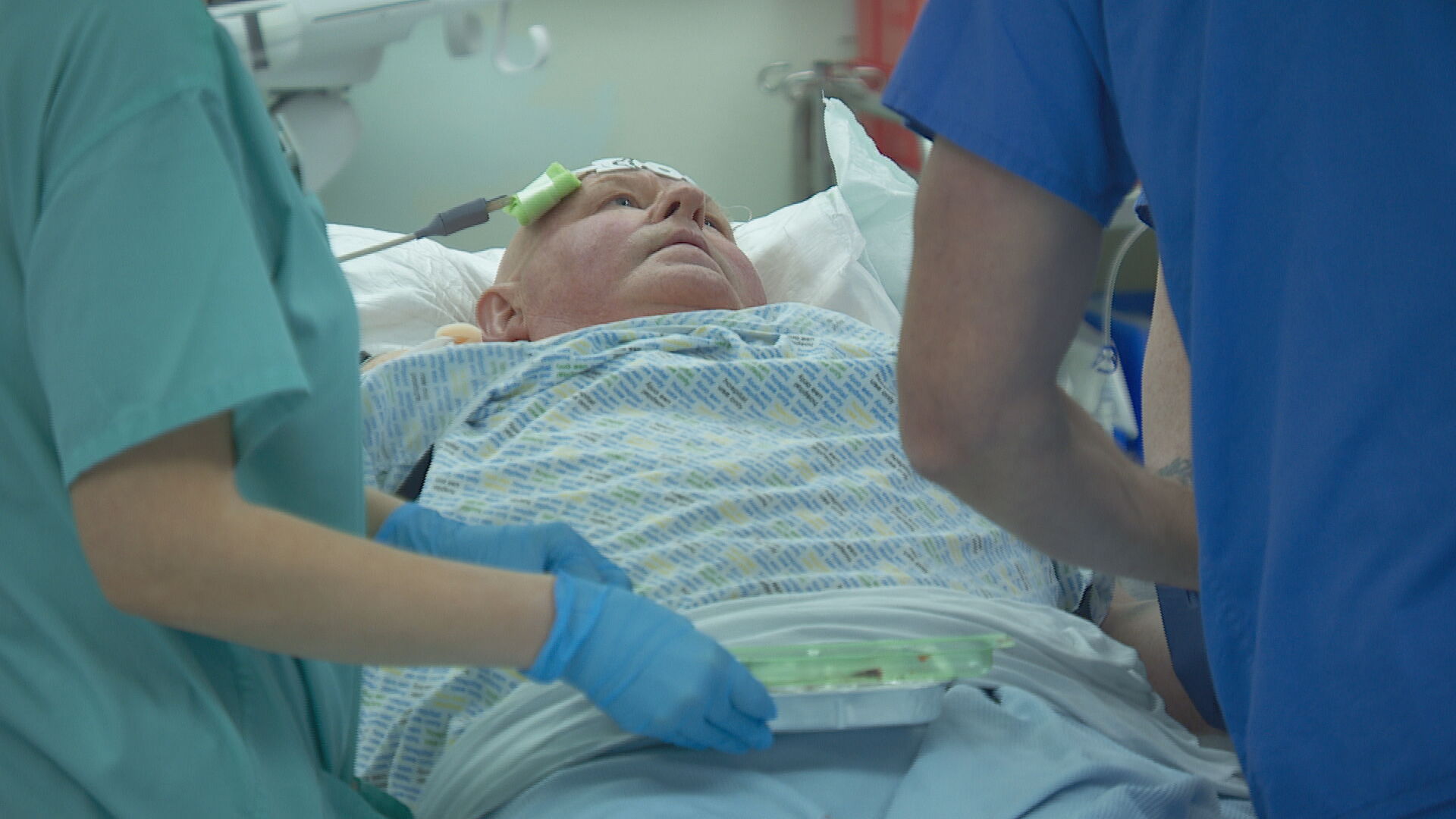 STV News
STV NewsOn speaking to Colleen for the first time, he said: “There were tears. It was quite emotional. It was a special moment, really.”
Colin is now planning to take her to New York for her birthday later this year. “Hopefully, whatever I want to achieve, I can do. The world is my oyster now.”
An additional ward has now opened at the Golden Jubilee, so staff have more space to care for heart transplant patients.
But with demand for the operations on the rise, so too is the need for more people to donate their organs.
Simon said: “These are life changing gifts that you can leave and they make an incredible difference to people. You can change people’s lives after you have passed. Life goes on beyond your death.”
Colin does not know who donated his heart, but is keen to eventually get in touch with their family.
He said: “I’ve already asked the question, but [staff] thought I’m not ready for that information yet. But when the time is right, it’ll be a two-way thing between them telling me, and the donor’s family getting in touch if they feel they want to.”
On his message to them, Colin gets tearful. “Thank you,” he said. “That’s all I could think… It’s only a small word, but I’m just so grateful for the opportunity.”
Watch the full report on Scotland Tonight at 8.30pm on Thursday or catch up on the STV Player.
Follow STV News on WhatsApp
Scan the QR code on your mobile device for all the latest news from around the country


